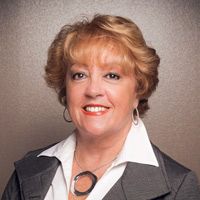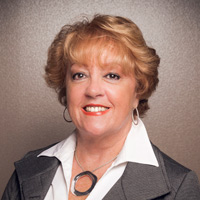5 Ways to Better Connect with Female Investors
Some financial advisers are missing the boat when it comes to helping women with their money. Here are some ways they're coming up short, and some things female investors should expect from the professional they've hired.


Profit and prosper with the best of Kiplinger's advice on investing, taxes, retirement, personal finance and much more. Delivered daily. Enter your email in the box and click Sign Me Up.
You are now subscribed
Your newsletter sign-up was successful
Want to add more newsletters?

Delivered daily
Kiplinger Today
Profit and prosper with the best of Kiplinger's advice on investing, taxes, retirement, personal finance and much more delivered daily. Smart money moves start here.

Sent five days a week
Kiplinger A Step Ahead
Get practical help to make better financial decisions in your everyday life, from spending to savings on top deals.

Delivered daily
Kiplinger Closing Bell
Get today's biggest financial and investing headlines delivered to your inbox every day the U.S. stock market is open.

Sent twice a week
Kiplinger Adviser Intel
Financial pros across the country share best practices and fresh tactics to preserve and grow your wealth.

Delivered weekly
Kiplinger Tax Tips
Trim your federal and state tax bills with practical tax-planning and tax-cutting strategies.

Sent twice a week
Kiplinger Retirement Tips
Your twice-a-week guide to planning and enjoying a financially secure and richly rewarding retirement

Sent bimonthly.
Kiplinger Adviser Angle
Insights for advisers, wealth managers and other financial professionals.

Sent twice a week
Kiplinger Investing Weekly
Your twice-a-week roundup of promising stocks, funds, companies and industries you should consider, ones you should avoid, and why.

Sent weekly for six weeks
Kiplinger Invest for Retirement
Your step-by-step six-part series on how to invest for retirement, from devising a successful strategy to exactly which investments to choose.
It’s amazing when you think about it, that in 2017, there’s still a pretty broad belief out there that women aren’t interested in dealing with finances — particularly when it comes to investing in their futures.
As a woman who’s been in the male-dominated financial industry for more than 30 years, I can tell you that just isn’t true. It isn’t that women are indifferent; it’s that all too often financial professionals struggle to find a way to connect in a way that’s meaningful to them.
When the delivery is condescending, over-technical, or part of a too-slick sales pitch, a woman’s eyes tend to glaze over, and she’ll just want to scream: “But what does this have to do with my family, my fears and my goals?!”
From just $107.88 $24.99 for Kiplinger Personal Finance
Become a smarter, better informed investor. Subscribe from just $107.88 $24.99, plus get up to 4 Special Issues

Sign up for Kiplinger’s Free Newsletters
Profit and prosper with the best of expert advice on investing, taxes, retirement, personal finance and more - straight to your e-mail.
Profit and prosper with the best of expert advice - straight to your e-mail.
Here are some ways our industry could improve the way it approaches women:
1. Don’t talk at, over or down to a woman who comes to you for advice.
If she comes in with her husband, spend as much time looking at and speaking to her as you do him. She may sit there quietly, but it’s likely she has opinions and questions, so draw her in and ask if she has concerns. She probably knows just as much as or more than her husband about their day-to-day family finances, and can offer information that will help you build a more realistic retirement plan.
2. Be an empathetic educator.
If a woman doesn’t have a handle on her portfolio, it might be because that wasn’t her role in the family. If her situation was more traditional, she probably was taking care of other things and was told over and over, “Don’t worry, I’ll take care of you.” Then suddenly, she’s a widow or divorced and is on her own without any idea about what she has or what to do with it. That doesn’t mean she can’t be informed. Women have great instincts. Empower her to make her own decisions by talking about retirement planning in matter-of-fact terms that calm her fears and let her know she always has a say.
3. Be reliable.
Keep the lines of communication open: Answer the phone when she calls — and call her from time to time just to check in.
4. Communicate effectively.
When you meet, make it a conversation, not a monologue, and afterward stay up to date on changes in her life. Remember the details that are meaningful to her: What does she want to do in retirement? What is her tolerance for risk vs. that of her spouse? And what kind of legacy does she want to leave for her family or her favorite charity?
5. Be honest.
Drop the ego and the sugary sales pitch; it’s not about you. A woman likely won’t care about what you’ve done for other clients — she wants to know what you can to do to help HER. How will you help keep her money safe? How will you help it grow? How will you help make sure she has enough if her spouse dies and she’s living on one Social Security check and a smaller pension? How will she pay for a nursing home if she or her husband gets sick? Don’t tell her what she wants to hear — tell her what she needs to know. Women appreciate transparency.
Women are actually pretty great about listening to advice, but it helps to be respectful and relevant. They want to work with someone who is technically skilled but also emotionally astute. And if they can find that person, someone they can trust, they’ll stay loyal and engaged.
Investment advisory services offered only by duly registered individuals through AE Wealth Management, LLC (AEWM). AEWM and Family Focus Financial Group are not affiliated companies.
Kim Franke-Folstad contributed to this article.
Profit and prosper with the best of Kiplinger's advice on investing, taxes, retirement, personal finance and much more. Delivered daily. Enter your email in the box and click Sign Me Up.

Kathleen Nolan, an Investment Adviser Representative and insurance professional, is president and owner of Family Focus Financial Group Family Focus Financial Group in Wall, N.J. The firm offers clients a wealth management process that includes investment consulting, wealth preservation, tax strategies, income planning and asset protection. Managing relationships with clients' other professionals is also an integral part of the process.
-
 Quiz: Do You Know How to Avoid the "Medigap Trap?"
Quiz: Do You Know How to Avoid the "Medigap Trap?"Quiz Test your basic knowledge of the "Medigap Trap" in our quick quiz.
-
 5 Top Tax-Efficient Mutual Funds for Smarter Investing
5 Top Tax-Efficient Mutual Funds for Smarter InvestingMutual funds are many things, but "tax-friendly" usually isn't one of them. These are the exceptions.
-
 AI Sparks Existential Crisis for Software Stocks
AI Sparks Existential Crisis for Software StocksThe Kiplinger Letter Fears that SaaS subscription software could be rendered obsolete by artificial intelligence make investors jittery.
-
 Social Security Break-Even Math Is Helpful, But Don't Let It Dictate When You'll File
Social Security Break-Even Math Is Helpful, But Don't Let It Dictate When You'll FileYour Social Security break-even age tells you how long you'd need to live for delaying to pay off, but shouldn't be the sole basis for deciding when to claim.
-
 I'm an Opportunity Zone Pro: This Is How to Deliver Roth-Like Tax-Free Growth (Without Contribution Limits)
I'm an Opportunity Zone Pro: This Is How to Deliver Roth-Like Tax-Free Growth (Without Contribution Limits)Investors who combine Roth IRAs, the gold standard of tax-free savings, with qualified opportunity funds could enjoy decades of tax-free growth.
-
 One of the Most Powerful Wealth-Building Moves a Woman Can Make: A Midcareer Pivot
One of the Most Powerful Wealth-Building Moves a Woman Can Make: A Midcareer PivotIf it feels like you can't sustain what you're doing for the next 20 years, it's time for an honest look at what's draining you and what energizes you.
-
 I'm a Wealth Adviser Obsessed With Mahjong: Here Are 8 Ways It Can Teach Us How to Manage Our Money
I'm a Wealth Adviser Obsessed With Mahjong: Here Are 8 Ways It Can Teach Us How to Manage Our MoneyThis increasingly popular Chinese game can teach us not only how to help manage our money but also how important it is to connect with other people.
-
 Looking for a Financial Book That Won't Put Your Young Adult to Sleep? This One Makes 'Cents'
Looking for a Financial Book That Won't Put Your Young Adult to Sleep? This One Makes 'Cents'"Wealth Your Way" by Cosmo DeStefano offers a highly accessible guide for young adults and their parents on building wealth through simple, consistent habits.
-
 Global Uncertainty Has Investors Running Scared: This Is How Advisers Can Reassure Them
Global Uncertainty Has Investors Running Scared: This Is How Advisers Can Reassure ThemHow can advisers reassure clients nervous about their plans in an increasingly complex and rapidly changing world? This conversational framework provides the key.
-
 I'm a Real Estate Investing Pro: This Is How to Use 1031 Exchanges to Scale Up Your Real Estate Empire
I'm a Real Estate Investing Pro: This Is How to Use 1031 Exchanges to Scale Up Your Real Estate EmpireSmall rental properties can be excellent investments, but you can use 1031 exchanges to transition to commercial real estate for bigger wealth-building.
-
 Should You Jump on the Roth Conversion Bandwagon? A Financial Adviser Weighs In
Should You Jump on the Roth Conversion Bandwagon? A Financial Adviser Weighs InRoth conversions are all the rage, but what works well for one household can cause financial strain for another. This is what you should consider before moving ahead.